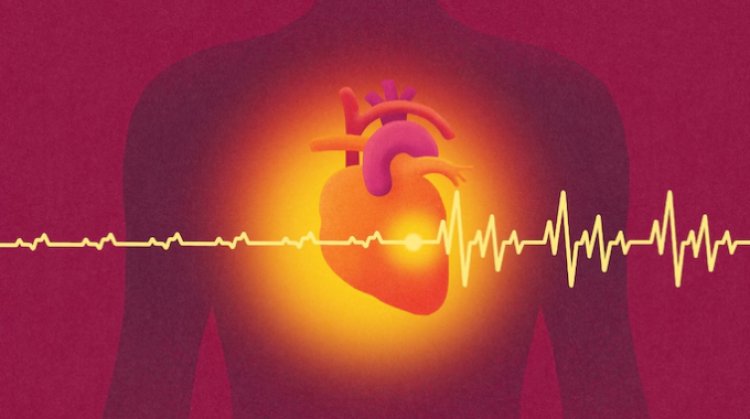Intermittent fasting increases the risk of heart disease death.
Researchers found that there was a 91% increased risk of heart-related death in those who consumed all of their food in less than 8 hours each day.Researchers found that there was a 91% increased risk of heart problems-related death in those who consumed all of their food in less than 8 hours each day.

INTRO
- Those who adhered to an 8-hour time-restricted eating regimen, a form of intermittent fasting, had a 91% higher chance of dying from cardiovascular disease, according to a study involving over 20,000 participants.
- Cardiovascular mortality was also more likely in those with cancer or heart disease.
- Restricting food consumption to less than 8 hours per day did not appear to be connected with a longer lifespan when compared to a typical schedule of eating between 12 and 16 hours per day.
A new study found that people who restricted their daily eating to fewer than 8 hours had a higher risk of dying from heart disease.
Preliminary research presented at the Epidemiology and Prevention "‚Lifestyle and Cardiometabolic Scientific Sessions 2024, March 18–21, Chicago, on behalf of the American Heart Association, revealed that individuals following a time-restricted eating plan were more likely to die from heart disease than those who ate for 12–16 hours a day.
Time-restricted eating, also referred to as intermittent fasting, is setting aside a set number of hours each day for eating; these hours could range from four to twelve hours in a 24-hour period.
The majority of intermittent fasts only eat during an 8-hour window and fast for 16 hours, according to the researchers.
Time-restricted eating has been shown to enhance blood pressure, blood glucose, cholesterol, and other cardiometabolic health indicators.
"Eating for a short amount of time each day—e.g., 8 hours—has become more and more popular in recent years as a means of improving heart health and losing weight, said Victor Wenze Zhong, the senior study author and chair of the Shanghai Jiao Tong University School of Medicine's epidemiology and biostatistics department in Shanghai, China.

Time-restricted eating improves blood pressure, blood glucose, cholesterol, and other cardiometabolic health markers, according to earlier study.
"However, the long-term health effects of time-restricted eating, including the risk of death from any cause or cardiovascular disease, are unknown," he continued.
What was found in the study?
- A 91% increased risk of heart problems-related death was seen in those who consumed all of their food in less than 8 hours each day.
- Individuals with cancer or heart disease also had a higher risk of cardiovascular death.
- Eating for at least 8 hours a day, but not more than ten, was linked to a 66% increased risk of dying from heart disease or stroke in those who already had cardiovascular disease.
- Eating within a time constraint did not lower the overall chance of dying for any reason.
- Over 16 hours of eating per day have been linked to a decreased risk of cancer-related death in cancer patients.
"We were shocked to see that the risk of cardiovascular disease death was higher for those who adhered to an 8-hour, time-restricted eating plan. Our research unequivocally demonstrates that, in contrast to a usual eating time range of 12 to 16 hours per day, a shorter meal duration was not connected with living longer, Zhong said, despite the fact that this sort of diet has been popular due to its potential short-term benefits.
The study's background and details
- About 20,000 US adults with an average age of 49 were included in the study.
- A maximum of 17 years and a median of 8 years were spent tracking study participants.
- Data from NHANES (National Health and Nutrition Examination Surveys) participants who completed two 24-hour food recall questionnaires within the first year of enrollment between 2003 and 2018 and who were at least 20 years old at enrollment were included in the study.
- Of the participants, around half identified as men and the other half as women.

RESTRICTIONS OF THE RESEARCH
But given that the majority of the data came from self-reported dietary information, the study has limitations.
The participant's memory or recall may have an impact on the results, making it difficult to determine typical eating behaviours.
According to this study, eating within a time constraint may be beneficial in the short term but harmful in the long run.
In order to fully comprehend the study's findings, Dr. Christopher D. Gardner, the Rehnborg Farquhar Professor of Medicine at Stanford University in Stanford, California, emphasised the need for additional research on the nutrient content of diets and demographic comparisons.













